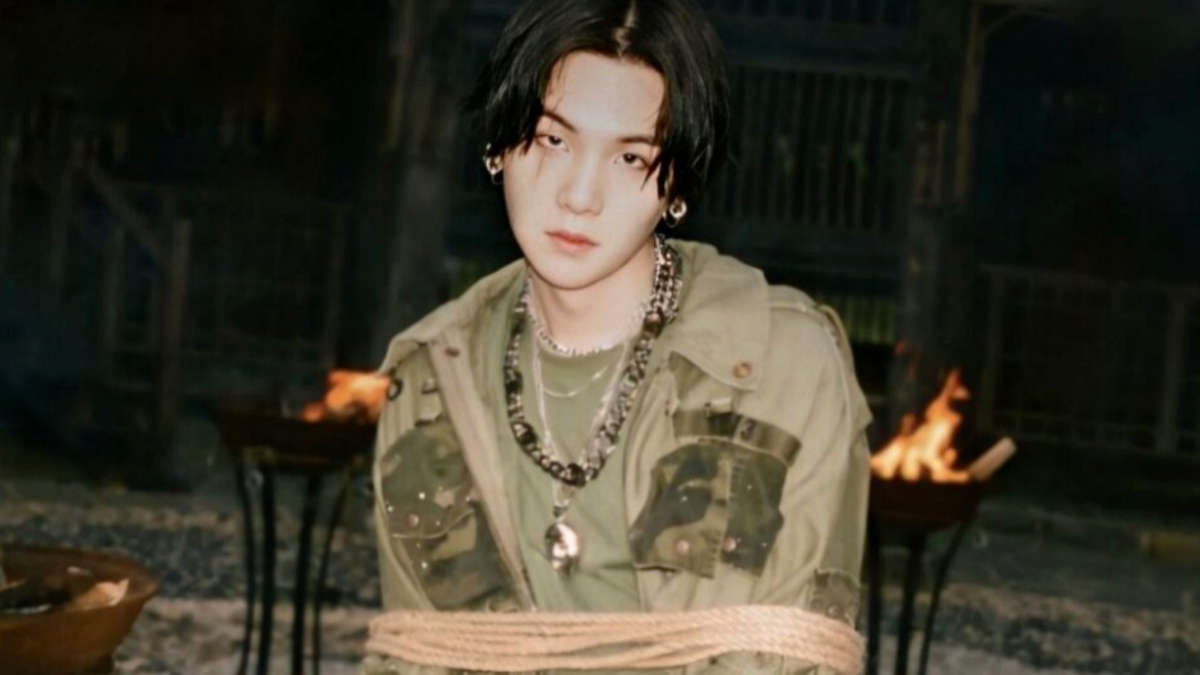BTS‘ Suga is back for his third solo album under the alias of Agust D. His first two mixtapes, Agust D and D-2 were released in 2016 and 2020 respectively, while the rapper was still releasing group albums alongside his bandmates. Now that BTS has put its group activities on pause for its members to comply with South Korea’s mandatory military duties, Min Yoongi is taking the opportunity to focus exclusively on solo projects.
Agust D’s latest album — D-Day — was released earlier today, along with a music video for its lead single, “Haegeum.” Despite the understandable hype surrounding that song, though, another track is gathering immense attention from fans, and that is “Amygdala.” This is the fourth song on the album, in which the artist once again opens up about difficult times in his life.
The rapper is known for being unafraid to dive into the darkest aspects of his own psyche and life, having previously used his music to speak out about his struggles with anxiety, depression, and loneliness. In “Amygdala,” however, Agust D chooses to embed his lyrics with particularly painful memories that concern his own and his parents’ physical health, conveying his despair when faced with unexpected situations outside of his control.
While this aspect of the song may sound pretty straightforward, not everything is. The chorus, in particular, can be a bit more difficult to interpret as it requires knowledge about brain functions, and is naturally raising some questions among listeners. While in the first part of the track Agust D calls the aforementioned memories back to the front of his mind, he then proceeds to request for his amygdala to save him from torment. Folks with basic knowledge of the brain’s structures might know what the amygdala is, but what exactly does it mean in the context of the song?
The meaning of Agust D’s “Amygdala”

To better understand this track, one must first understand the amygdala’s function in the brain. This region of our minds is mostly responsible for handling emotional processes and regulating those emotions, but it also plays a role in encoding memory, particularly when memories have a highly emotional component. Putting it simply, when a remembrance has a strong emotional impact on an individual, be it positive or negative, the amygdala stores that information so that in the future, those memories can aid the person to recognize a setting or event that is similar or elicits the same emotions, and inform their decisions.
In his song, when faced with the recollection of his mother’s heart surgery, his father’s cancer diagnosis, and his own road accident, Agust D pleads directly with his own brain, his amygdala, to let him forget the painful memories he’s evoking. Despite how important his region of our minds is for survival, and how much it works to protect us from threats by aiding our fight-or-flight responses, the rapper would just rather erase all his most negative memories to live in blissful ignorance. “My amygdala, save me from here. Hurry and get me out,” he says.

Of course, this effort is futile. Favoring emotion over logic, the amygdala can never respond to rational pleas to forget, even if sometimes memories cause more harm than good. Despite it all, though, the artist also reflects on how none of these situations were able to keep him down for good.
“The never-ending hardships weren’t able to kill me, and I bloom a lotus flower again.”
Even though flower symbolism can change from culture to culture, the general idea is that lotus flowers typically represent rebirth, purity, strength, and overcoming adversity. This meaning derives from the fact that these plants can emerge from mudded water and bloom unstained by it. This perfectly showcases how, even in a song full of sorrow, Agust D manages to come out the other side hopeful, as he has done so numerous times. This, in turn, inspires hope in the listeners.
All that said, it’s important to note that this is merely an interpretation of the artist’s lyrics, and at the time of writing, Agust D has not explained his creative process for “Amygdala.” When the music video for the single is released, fans might get a better insight into the song.

